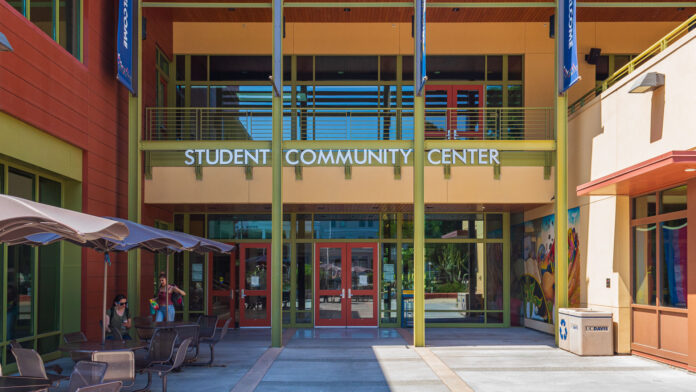Mental health workers and advocates for marginalized groups provide insight into the unique struggles community members face
Many have struggled with stress related to the continued effects of the virus and the recent election. According to Liliana Campos—a health psychology doctoral intern for the Student Health and Counseling Services (SHCS) who partners with the AB540 and Undocumented Student Center—for some marginalized groups, the effects have been especially burdensome.
“I think [with] the presidential election, [the undocumented community is] among the most marginalized communities that would have been affected, that are affected,” Campos said. “And I think that in the conversations of whether it be a vaccine, whether it be financial support for communities, these are communities that are still left out of the conversation.”
Michelle Burt, the director of multicultural services for the Community Advising Network (CAN), said that it can be difficult to know how to seek support as a member of a marginalized community.
“Students’ experiences navigating stress related to managing [the] impact of COVID, racial injustice, economic and political uncertainty can lead anyone to feel isolated and overwhelmed,” Burt said via email. “It can be challenging for students to know how and where to get help.”
Marian Ashley Fecha, a second-year economics major and mental health and cultural identity advocate for the UC Davis AB540 and Undocumented Student Center, mentioned some of the ways the center is helping to fulfill basic needs for the undocumented community.
“So far, we have hosted support group workshops with our mental health partners, provided bedding (applications are still out for some), emergency grants, food vouchers, and are currently working on sharing other resources with the community with the hopes that they will feel less burdened,” Fecha said.
According to Laura Bohórquez García, the director of the AB540 and Undoumented Student Center, the center offers beneficial resources alongside community interaction.
“Opportunities to be in and create [a] community and access to emergency grants are two of the biggest strengths that the Center is currently providing,” García said.
With the grant, students can receive up to $500 that can be put toward basic needs and expenses brought on by the burdens that COVID-19 may have caused for them and their families.
A new support group provided by the AB540 and Undoumented Student Center, called ‘Together We Rise,’ meets every first and third Monday of the month from 1-2 p.m., and allows undocumented students to meet with the center’s mental health partners to discuss their experiences together.
Fecha said that her role as a mental health advocate for CAN has been enriched by the conversations she’s had with underserved communities.
“My own experience as an Asian femme immigrant within the LGBTQIA+ spectrum does allow me to have perspective and empathy, however, it was having those tough conversations and listening to the stories of those similar and those very different to me that allows me to be sensitive,” Fecha said. “Understanding burnout, intergenerational trauma, financial stressors, the myth that is the American Dream.”
Campos noted that she’s seen an attitude that is unique to those in the undocumented community since the beginning of the virus outbreak.
“So much about the community that I connect with […] is that there’s this sense of hope, no matter how bad things are,” Campos said. “And I really do think that this is super unique to this community, as many of them have lived their entire lives under chronic stress and under chronic uncertainty.”
She mentioned that although the undocumented community may handle the stressors well, fundamental social and political atmospheres need to change in order to move past the marginalization to which they have been subject.
“I think the community is so incredibly resilient,” Campos said. “And at the same time, we need to change the environment so that they can continue to thrive. […] We can’t keep doing the same type of mental health work without actually changing the social conditions and the political conditions.”
Written by: Lyra Farrell — features@theaggie.org










